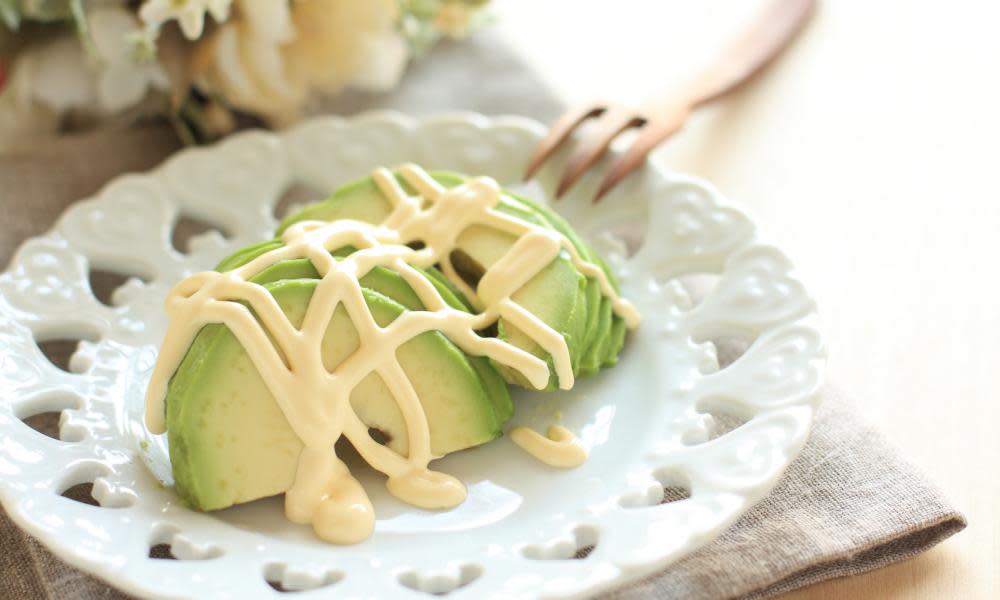Reports of the death of mayonnaise have been greatly exaggerated

Over the weekend an article by Sandy Hingston from the August edition of Philadephia Magazine titled “The White Stuff” (oh boy) was published online, with the headline: “How Millennials Killed Mayonnaise”.
Writing about millennials online is like a red rag to a bull – a bull that specifically loves to procrastinate by getting angry with strangers. And this one blew up. The articleis the perfect storm of boomer porn that flits between nostalgia, racial politics, culture wars and the interesting boomer take on what constitutes satire. Combine that with a zealous headline writer, and you’ve got a recipe for viral success.
Boomers loved it. Millennials hated it. Millennials loved hating it. But that’s not exactly surprising because millennials hate everything.
Full disclosure. I fall into the forgotten Gen X no-man’s land where I am neither boomer nor millennial, and I must say that from my generation’s perspective we’re doing the economic heavy lifting here, and you all look like big old cry babies fighting an online culture war over which end of a boiled egg you’re supposed to cut.
It’s true that mayonnaise sales in the US are in decline. Business Insider crunched the numbers and found that the US market for the condiment has shrunk roughly 1.5% annually over the last five years. But as with all statistics, correlation is not causation. Did millennials kill mayonnaise simply by existing, or did mayonnaise kill boomers who in turn were no longer able to buy mayonnaise? Perhaps millennials could no longer afford mayonnaise due to decades of intergenerational theft?
FOR REAL THOUGH IF MILLENNIALS HAD THE POWER TO KILL ENTIRE INDUSTRIES DO YOU REALLY THINK WE'D BE LIKE "LOL MAYONNAISE IS DONE BUT THE STUDENT LOAN INDUSTRY CAN STAY"
— NOT A WOLF (@SICKOFWOLVES) August 13, 2018
To her credit, Hingston hits many of the key cultural issues behind mayonnaise’s century-long rise and recent somewhat fall. Hidden among a bunch of five-dollar words (I had to look up “esculent” – it means “edible”) and references to obscure German smallgoods, she references the historical whitewashing of American cuisine, a lack of diversity in food media, and also the fact that demographically millennials are actually the most frequent purchasers of mayonnaise, negating the premise of her article in its entirety. These factors, however are quickly glossed over because well, she likes mayonnaise and doesn’t much care for millennials or change.
I don’t pretend to understand millennials any more than Hingston does. In fact she probably has the edge, having given birth to two of them.
Hingston praises her son Jake. A good son, by her own words. He likes mayonnaise. She also mentions that she has a daughter who hates mayonnaise. The daughter is not named, nor is she described as “good”. It’s possible that the entire article was written just to passive-aggressively let Hingston’s daughter know that Mum does not agree with her life choices. Call your mother, Miss Hingston.
There’s also a weird detour blaming the downturn in the mayonnaise market on reverse racism (not a thing), because young white kids want to be African or Chinese or something. It’s not a great article.
But its referencing of Buzzfeed articles as evidence of mayonnaise’s decline is perhaps the most boomer take of all. Buzzfeed will write about literally anything, as long as it brings in those sweet, sweet clicks. Hell, they’ve even written about me . Right now on Buzzfeed you can organise a hypothetical birthday party for Joe Jonas and find out if he hypothetically might like it , or plan your autumn holiday based on your Yankee Candle preferences. If there’s anything millennials killed, it’s content.
did a mayonnaise write this? pic.twitter.com/iqBjpoAVsa
— ainsley (@akuptz) August 15, 2018
But back to the question. Did millennials really kill mayonnaise? The answer is obviously, (by Hingston’s own statistics) “No”, but also “I don’t care”. It’s mayonnaise. Foods fall in and out of fashion all the time, but you don’t see people blaming the youth of today for the demise of devils on horseback, oysters Kilpatrick, and food hedgehogs (although those last ones you can definitely bring back, you ungrateful millennials).
Reports of the death of mayonnaise have been greatly exaggerated. While in this era of Uber Eats fewer might be making macaroni salad or turkey sandwiches at home, those millennials who are gainfully employed eat enough mayonnaise with their sushi and poke bowls to keep Big Mayo in the black for a century. They slather it on banh mis, and it’s the go-to condiment when you want to have your frites avec anything but Heinz 57. They even love it with Japanese fried chicken and okonomiyaki. In fact, it’s millennials and their adventurous, modern, multicultural tastes that may be the only thing keeping mayonnaise alive at all.

 Yahoo News
Yahoo News 
